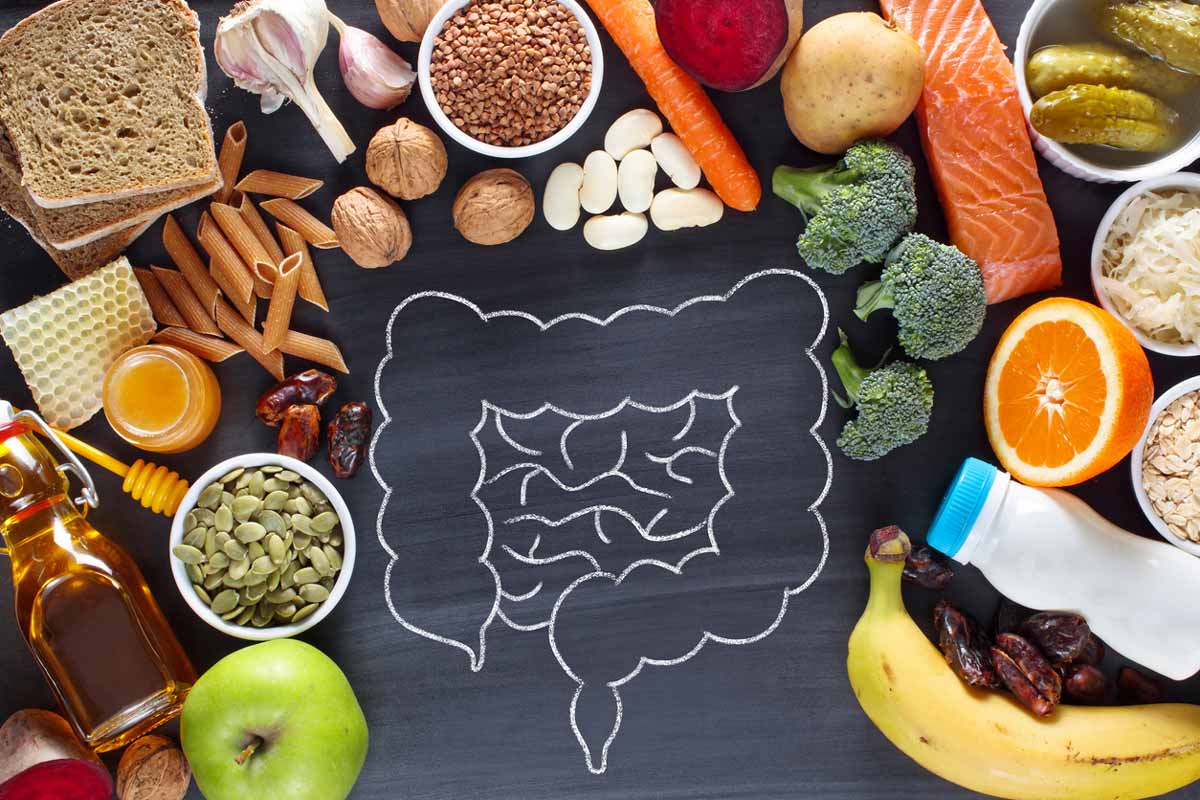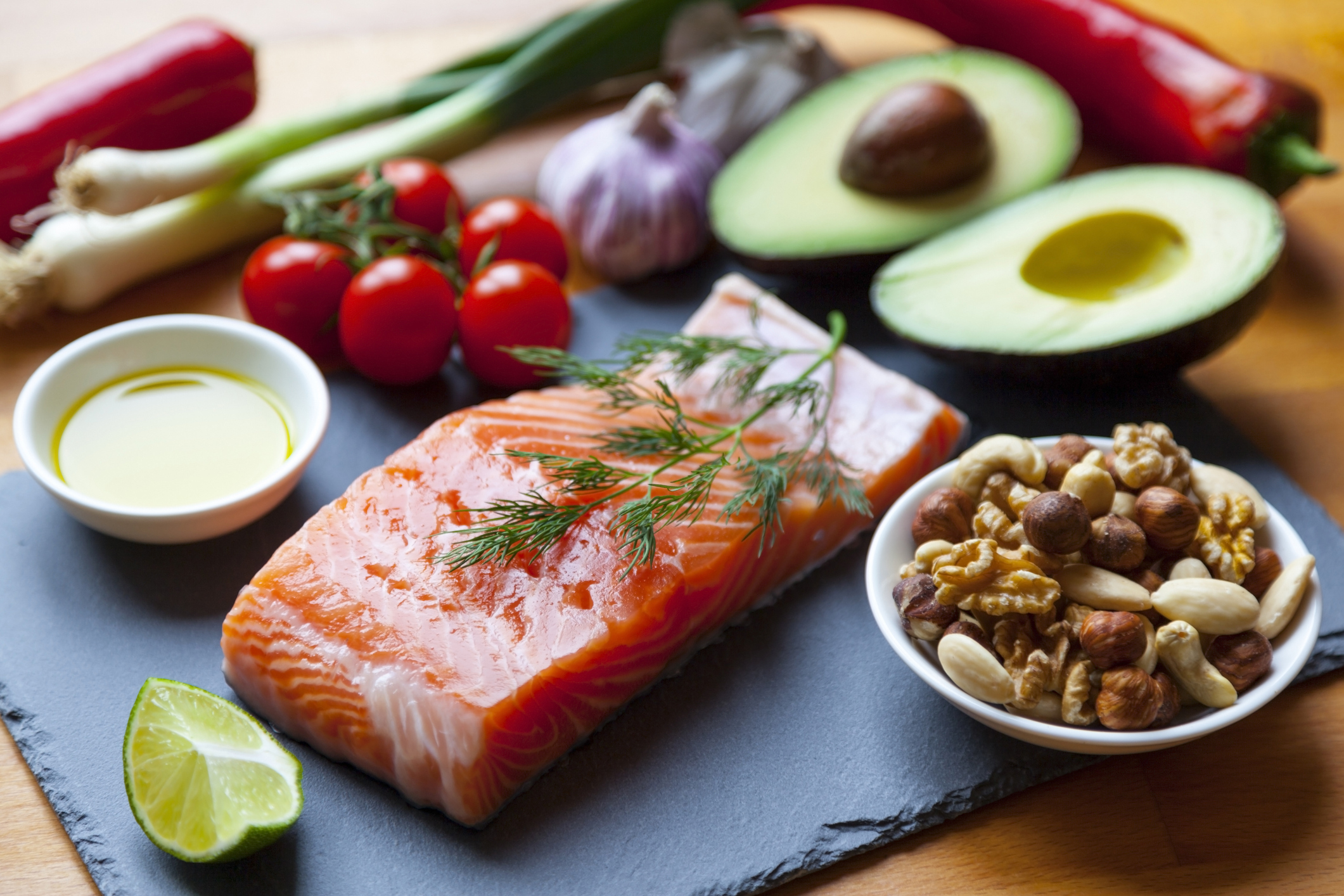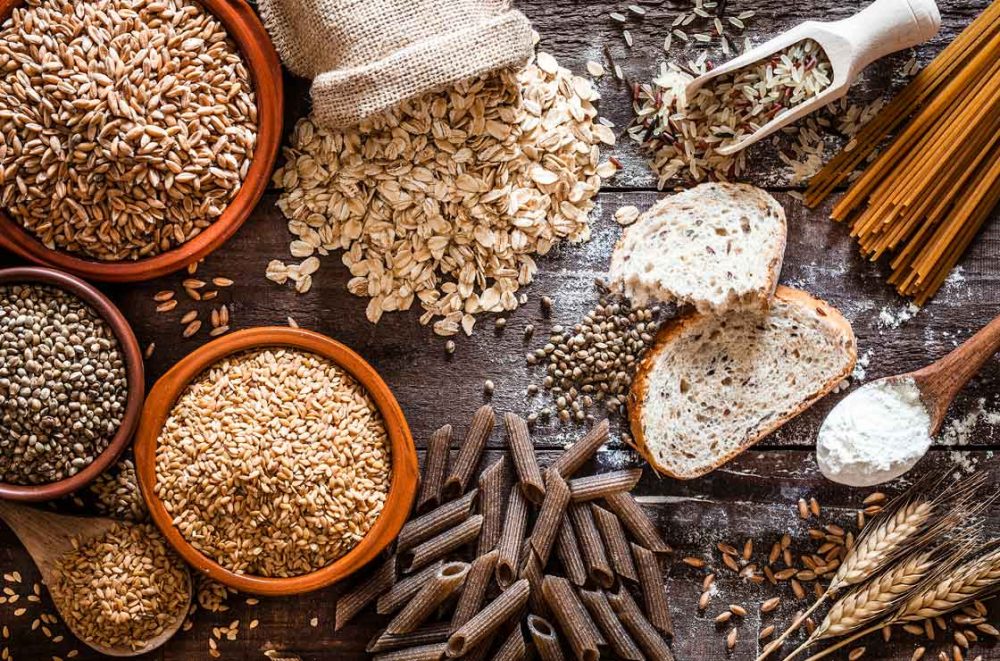The colon is the final part of your digestive tract. Since its part of the digestive system, the food you eat is an important factor in the health of your colon. Keeping your colon healthy is essential to reduce the risk of colon cancer and other colon disorders. Eating a nutrient-dense, high-fiber diet keeps the walls of your colon strong and helps prevent hemorrhoids (piles) or pouches in your colon.

Following a healthy diet can lead to improved digestion, increased energy, better absorption of nutrients in your body, and healthy body weight.
What to Eat to Support a Healthy Colon?
Increase your overall fiber consumption
Fiber helps move food through your digestive tract, keeping you regular and preventing constipation. The Dietary Guidelines recommend adults get between 25 and 30 grams of fiber daily. High fiber diets help lower your risk of colon cancer and help prevent hemorrhoids that can lead to diverticular disease.
The best way to add fiber to your diet is by eating fiber-rich fruits, vegetables, whole grains, and legumes. Following are some of the best fiber-rich food choices:
- Apples
- Artichokes
- Bananas
- Black beans
- Broccoli
- Brown rice
- Brussels sprouts
- Carrots
- Chickpeas
- Lentils
- Oranges
- Peas
- Raspberries
- Spinach
- Sweet potatoes
- White beans
Consume plenty of Omega-3s

Omega‑3 fatty acids can reduce inflammation and improve the function of colon cells. The best way to add omega-3s into your diet is through fish, nuts, and oils, and some of the best sources include:
- Anchovies
- Ground flaxseed
- Herring
- Mackerel
- Olive oil
- Salmon
- Sardines
- Sunflower oil
- Walnuts
Choose whole grains
Whole grains contain more colon-friendly vitamins, minerals and fiber than refined grain foods such as white flour and white rice. When selecting grains for your diet, choose from these options:

- Barley
- Brown rice
- Couscous
- Millet
- Quinoa
- Steel cut oats
- Whole wheat
- Wild rice
Add in Fermented Foods
Fermented foods contain live micro-organisms called probiotics, which help replenish the good bacteria in your gut to support optimal health. These foods add a new level of flavor to your dishes while promoting colon health:
- Apple cider vinegar
- Kefir
- Kimchi
- Kombucha
- Sauerkraut
- Yogurt
Increase your Water Intake
Your colon is responsible for absorbing water into the body, so ensuring you have enough water throughout the day will help keep your colon and body in shape. Water also aids in keeping your digestive track moving and flushing out all the fiber you have consumed. The amount of water you should consume in a day varies from person to person, depending on factors such as your weight and overall daily activity levels. The average recommended amount for women is 11.5 cups per day and 15.5 cups per day for men.
Foods To Limit or Avoid
Red meat and Processed Meat
The American Cancer Society has reported that per day consumption of 100 grams or more of red meat (the equivalent of a small hamburger) or 50 grams of processed meat (like hot dogs and sausage) can increase chances of colon cancer by 15 – 20 percent due to the higher saturated fat and preservative content.
Heavily Processed Foods
Processed foods usually have higher sodium, sugar and saturated fat levels. Eating these foods can lead to increased inflammation in your body and can raise your risk of colon cancer and colon disorders. To limit your intake of heavily processed foods, cut back on items such as:
- Bakery products
- Chips and crackers
- Condiments — ketchup, mayonnaise, jellies, dressings, etc.
- Fast food meals
- Frozen meals and snacks
- Margarine
- Microwave popcorn
- Refined vegetable oils — canola, corn, soybean
Refined Sugar
Studies have found that diets high in sugar and low in fiber are linked to people with ulcerative colitis, Crohn’s disease and other conditions related to the colon. To limit your refined sugar intake cut back on food and drinks such as:
- Brownies
- Cakes
- Candy
- Cookies
- Fruit juices
- Ice Cream
- Pies
- Sodas
By following a healthy diet, you can boost your immune system while lowering your risk for various diseases within your colon.
Ref: https://www.dulyhealthandcare.com/
Disclaimer
The Content is not intended to be a substitute for professional medical advice, diagnosis, or treatment. Always seek the advice of your physician or other qualified health provider with any questions you may have regarding a medical condition.